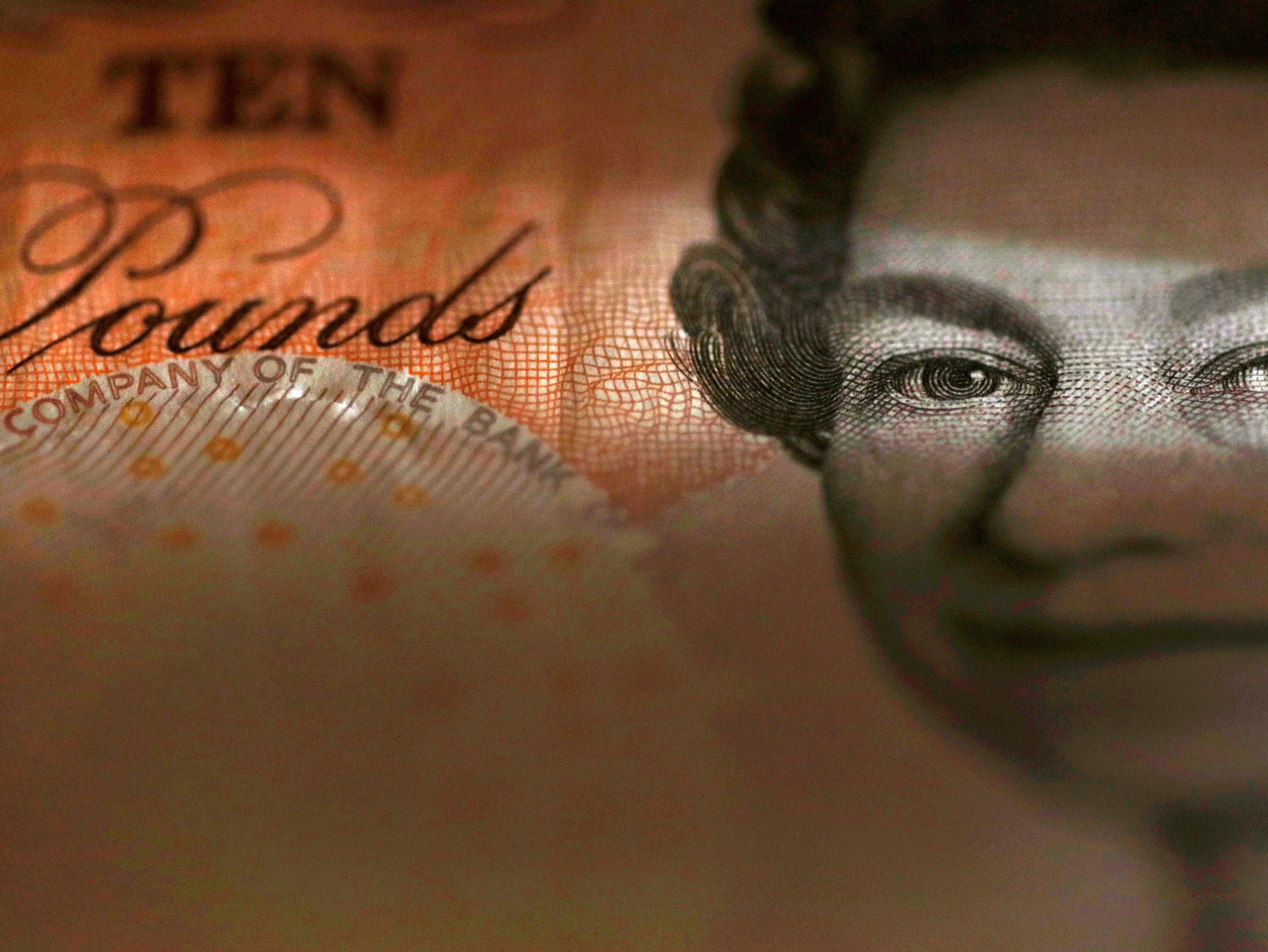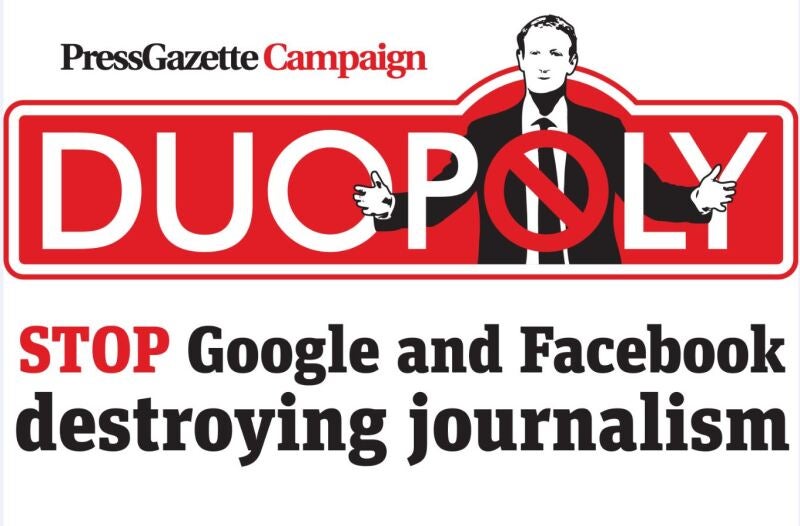
Since Press Gazette launched its Duopoly campaign just over a week ago plenty of people have said it is futile and pointless to oppose Facebook and Google’s dominance of the online advertising market.
But I have yet to meet anyone who thinks it is a good thing that these two US-based giants are set to swallow more than two thirds of the entire UK online advertising market.
By Press Gazette’s reckoning well over half of that £10.3bn went to Google and Facebook. The market grew by 17 per cent year on year and more than 80 per cent of that new money went to Google and Facebook.
This is how Press Gazette estimates Google and Facebook’s share of the UK digital advertising market compares to that of the entire UK regional and national press (in billions):
Ad spend totals for the rest of the market are due out at the end of the month. But on current trends the entire UK national and regional newspaper industry in print and online will attract around £2.2bn worth of advertising, around £420m of that being online.
National and regional newspapers attracted some £4.9bn a year of advertising in 2005 (at current prices), according the Advertising Association/WARC figures charted above (figures in millions).
Over the last decade a sum growing to well in excess of £2bn a year has been taken out of the journalism industry and gone elsewhere online, and most of that cash is now going to Google and Facebook.
The duopoly takes at least £1bn a year which previously went towards paying journalists’ wages and providing us with democratic accountability.
In the local press the decline in advertising has been accompanied by a similar-sized drop in the number of journalists employed, from around 13,000 to less than half that figure.
Payment appears to have gone from the creators of content to those who aggregate it and provide a platform for others to share it.
The vast growth in press readership online has not been accompanied by a commensurate rise in advertising revenue.
Digital advertising revenue is levelling off, and in some cases declining, for news publishers while it continues to soar for the duopoly.
The consequence of this trend will be fewer journalists, less holding those in power to account and a less well-informed electorate.
As a society, and as an industry, we can together say that this is not a future we want.
This could be tackled through regulation, through publishers themselves banding together to forge a new relationship with the duopoly or through Facebook and Google themselves taking action. In my view this last option would be enlightened self interest: parasites harm themselves by killing off the host.

Email pged@pressgazette.co.uk to point out mistakes, provide story tips or send in a letter for publication on our "Letters Page" blog
